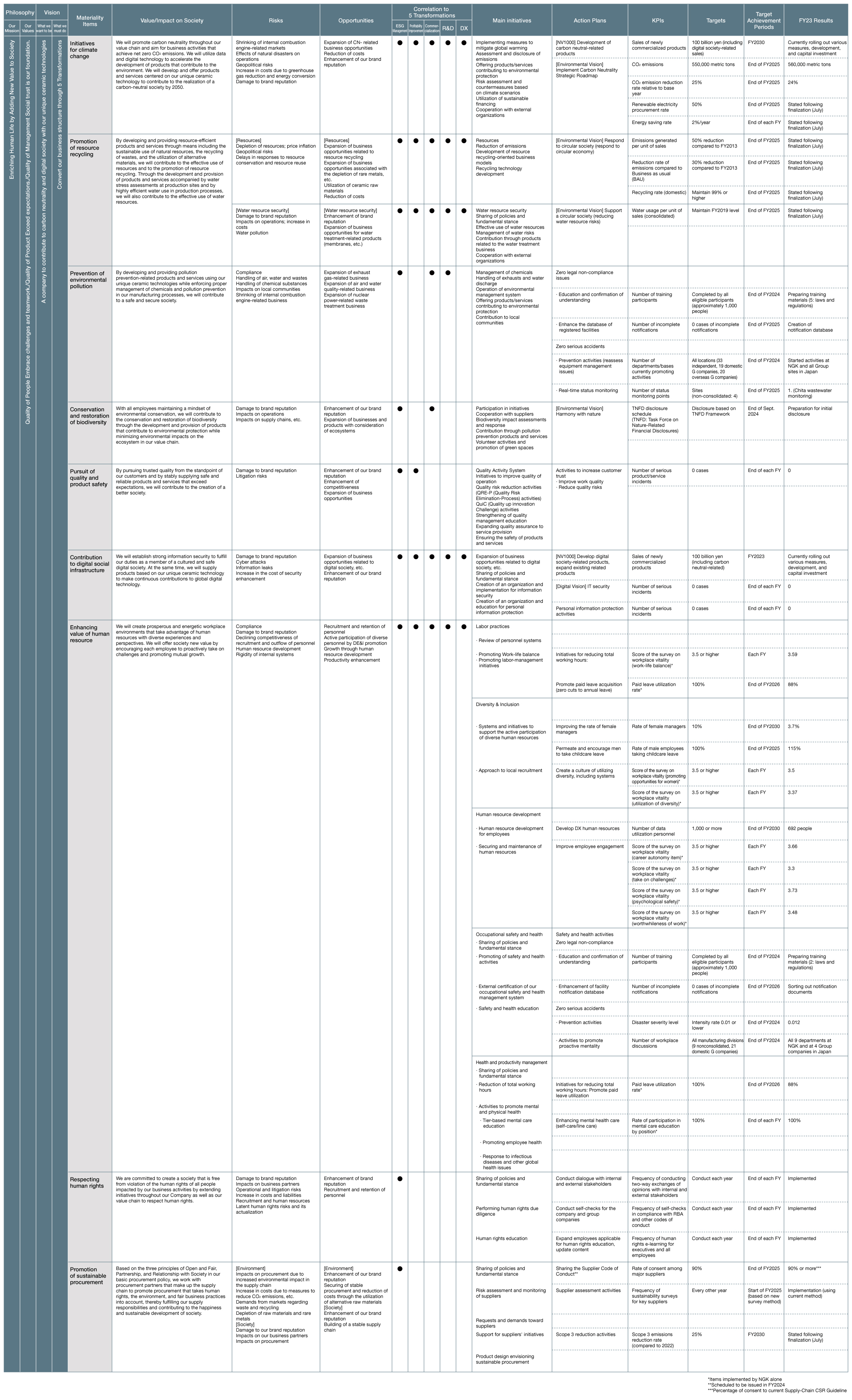Sustainability
Materiality
As a corporate entity that contributes to the future of energy, protection of the global environment, and development of industries based on its unique ceramic technologies, the NGK Group identifies Materiality in order to become a company that we want to be based on the NGK Group Philosophy of “Enriching Human Life by Adding New Value to Society.”
Materiality Identification Process
Materiality Identification Process
Step 1: Listing of issues
With reference to evaluations by ESG evaluation bodies, international frameworks and guidelines such as the GRI Standards and the SDGs, and other resources, we created a list of environmental, social, and governance issues. Of these, we listed those environmental and social issues that have a significant relevance to our Group’s business, while excluding governance issues as items that should be addressed naturally as an organization.
Step 2: Evaluation of the importance of issues
We established a working group composed of representatives from different departments within the Company. The working group mapped the listed issues along two axes of “impact on business” and “demands and expectations of stakeholders/impact on people and the environment” and then conducted evaluations of the issues. (Evaluation of the latter axis included evaluation by outside experts.) Based on the evaluation results, the ESG Management Committee (currently Sustainability Management Committee) held deliberations and identified candidates for Materiality. For these candidates, the working group organized the risks and opportunities posed to the NGK Group, particularly those considered to possibly have a significant impact on business, and reviewed our major initiatives.

Step 3: Confirmation of validity and identification of Materiality
For all of the Materiality candidates, the working group discussed what sort of value the NGK Group wishes to bring to society by addressing the issues. To check for omissions in the scope of consideration as well as consistency with company-wide targets, the working group then laid out the relationships between the issues and our Group Vision, and prepared a draft version of the Materiality items.
Based on that draft, the items were discussed by the ESG Management Committee in terms of their validity, then discussed and decided on by the Board of Directors.
Step 4: Setting KPIs
Regarding Materiality management, we have set items to work on, KPIs, targets, and target achievement periods for each material issue. Following discussion by the ESG Management Committee, these were discussed and decided on by the Board of Directors.

